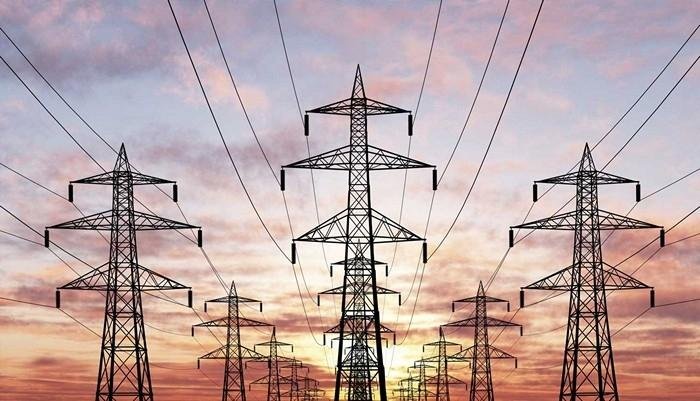In July 2019, when the International Monetary Fund (IMF) formally approved USD 6 billion bailout package for Pakistan, then facing a balance of payment crisis, one of the central themes of the agreement was ‘energy sector reforms to eliminate quasi-fiscal losses and encourage investment, including by depoliticising gas and power tariff setting and over the program period, gradually bringing the sector to cost recovery”.
Based on this commitment, David Lipton, First Deputy Managing Director and then Acting chief of IMF had announced that the strong financial support to the authorities’ policy efforts by Pakistan’s international partners was essential to meet the large external financing needs in the coming years and allow the program to achieve its objectives.
So besides the other financial and monetary policy objectives, the key objective of the programme was to eliminate losses, depoliticise tariff setting, and ultimately bring the power sector to full cost recovery within the 39-month fund facility period ending 1 October 2022.
Almost 30 months down the road, Pakistan has not shown any visible, sustainable progress on any of these programme objectives for the country’s beleaguered power sector, and any progress that has been seen at all has followed the chronic one-step-forward-two-steps-back pattern.
System losses have not eased, tariff setting remains highly politicised, and full cost recovery remains a pipedream despite a punitive 50 percent increase in power tariffs during the three years in power of the incumbent government.
The IMF had noted at the outset that quasi-fiscal losses increased further and represented a significant fiscal risk.
“Following several years of steady decline in the flow of circular debt in the power sector, new arrears were accumulated over FYs 2018 and 2019, reaching close to PKR 800 billion (around 2 percent of GDP)”, the IMF had reported.
Delays in adjusting tariffs, reversal of policies – such as revenue-based load shedding – and the non-payment of implicit subsidies by the government had been the main contributors to the increase in arrears.
As a result, the stock of circular debt stood at over 4 percent of GDP as of March 2019. This was in addition to arrears in the gas sector totalling to over half a percent of GDP, coming mostly from delays in tariff notifications and increasing technical losses.
Circular debt normally refers to the cash flow shortfall incurred in the power sector from the non-payment of obligations by consumers, distribution companies, and government organisations.
Implicit tariff subsidies granted to special groups (exporters, agricultural tubewells, AJK) have remained outside the budget and their non-payment has further bloated circular debt.
The authorities then promised to launch ambitious reforms in the energy sector aimed at addressing inefficiencies and eliminating quasi-fiscal losses, agreeing that structural weaknesses in the energy sector had long remained unaddressed.
They had accepted that only an all-encompassing strategy, including pricing policies and supply and demand management, could deliver the improvements needed to make Pakistan’s energy sector an engine of growth rather than a hindrance.
As a follow up, the government put out a narrative that eliminating power sector losses on a sustainable basis was unavoidable with new pricing policies and improvements in governance and infrastructure as the arrears flowed out of applicable tariffs that were far below the required levels and only approved with significant delays, implicit subsidies provided by the government that have long remained unbudgeted, and technical and distribution losses.
Therefore, it started off with a 10 percent increase in tariff at the outset as prior action to generate PKR 150 billion in additional revenue and set in motion automatic quarterly tariff adjustments.
This was to be followed by a set schedule of tariff as per regulator’s determinations for following years to allow for automatic quarterly tariff adjustments along with a plan to tackle the outstanding circular debt stock.
The plan, however, got derailed first due to political reasons followed by the outbreak of the Covid-19 pandemic early last year. The Fund programme was given a pause to absorb the economic shock from the health pandemic.
In January-February this year, the two sides agreed to revive the programme with some additional disbursements by the IMF.
To bring the fund programme back on track, the government took some tough decisions as prior conditions including significantly increasing electricity prices, PKR 140 billion in additional taxes, and an unprecedented autonomy for the central bank.
The government thus increased electricity base prices by 16 percent in February and made a commitment to further increase tariffs by 36 percent in six months between April and October 2021.
To ensure this, the federal cabinet approved the promulgation of an ordinance aimed at preparing a legal path to increase power tariff by a minimum of PKR 5.65 per unit from April till October to collect a whopping PKR 900 billion from consumers.
The cabinet allowed further amending the NEPRA Act, through an ordinance, to give powers to the government to impose a new surcharge equal to 10 percent of the electricity revenue requirements or PKR 1.40 per unit.
In addition, the ordinance also envisaged measures to implement the Circular Debt Management Plan, approved by the cabinet, to ensure notification of tariff determined by the regulator in 15 days in case of quarterly adjustments and one-month for annual tariff adjustments.
The circular debt management plan envisaged at that time also promised passing on additional burden of PKR 1.135 trillion to consumers between April 2021 and June 2023 to put power tariff on a full cost recovery level with per-unit tariff increase of over PKR 7 per unit including a special surcharge and PKR 8.95 per unit and the initial PKR 1.95 per unit increase.
But with an initial PKR 1.95 per unit increase in tariff and quarterly tariff adjustments, politics took over again and even though tariff schedule was approved by the cabinet led by Prime Minister himself, then Finance Minister Hafeez Shaikh was sent packing for, among other things, committing too steep a tariff increase plan.
The programme derailed again and the IMF said it was flexible to make adjustments without compromising on the basic objectives of the programme. That is, elimination of losses, depoliticised tariff setting, and full cost recovery.
In recent talks once again, the theme remained unchanged and the government had to announce PKR 1.40 per unit average tariff increase as a pre-condition to revive the programme. This means the government would generate at least PKR 139 billion additional funds to power companies this year due to which the amount of subsidy will be slashed. The government has allocated PKR 330 billion subsidy in budget 2021-22 against power division’s demand of PKR 501 billion.
The base tariff has thus increased by almost 55 percent to PKR 17.85 per unit on average since the current government came to power. This does not include surcharges, taxes and other charges, etc.
On top of that, a significant burden in the form of higher monthly fuel cost adjustment has also become a norm – PKR 1.38 per unit in July, PKR 1.95 per unit in August and PKR 2.66 per unit pending for September.
The understanding given to IMF was that the government would reduce power sector losses by 0.5 percent each year starting this year and improve recovery by 1.33 percent per year to contain circular debt that stood at well above PKR 2.28 trillion as of 30 June 2021, compared with PKR 2.15 trillion as of 30 June 2020.
This is why an agreement with the IMF on power sector remains elusive this time, given the Fund’s uncompromising stance that without de-politicisation of tariff, reduction in losses, and improvement in recoveries, the power sector cannot stand on its own feet and all half-hearted actions would keep the sector unsustainable.










